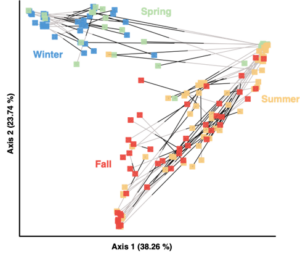On January 3, 2021 / News
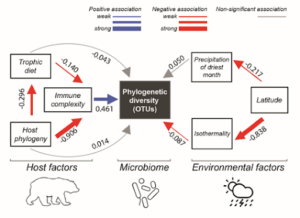
Path model of internal microbiomes depicting direct and indirect effects of immune complexity in the context of the best biotic and abiotic predictors of microbial phylogenetic diversity.
Genome Biology publishes “Host-associated microbiomes are predicted by immune system complexity and climate”, with more than a dozen students from Dr. Woodhams’ two graduate seminar courses on microbiomes as co-authors. The paper includes combined data from the Earth Microbiome Project as well as 50 additional studies to evaluate global-scale patterns of bacterial diversity and function across 654 host species and 15,000 samples.
Read this Publication | News Article
Woodhams, D.C., Bletz, M.C., Becker, C.G., Bender, A.B.*, Buitrago-Rosas, D.*, Diebboll, H.*, Huynh, R.*, Kearns, P.J., Kueneman, J., Kurosawa, E.*, LaBumbard, B.C.*, Lyons, C.*, McNally, K.*, Schliep, K., Shankar, N.*, Tokash-Peters, A.G.*, Vences, M., Whetstone, R.* Host-associated microbiomes are predicted by immune system complexity and climate. Genome Biol 21, 23 (2020). https://doi.org/10.1186/s13059-019-1908-8
Bolded are members of the Woodhams Lab. * Denotes graduate student co-author.
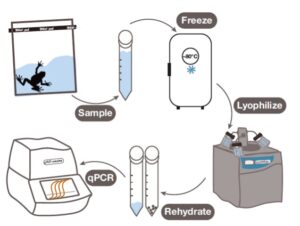

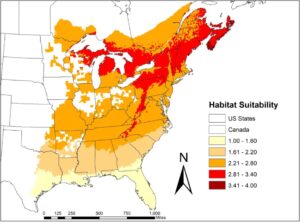
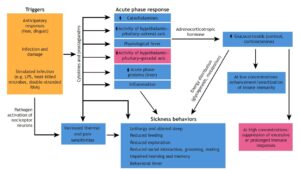

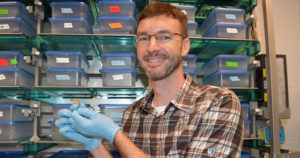

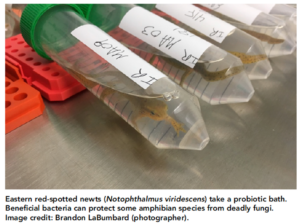 Probiotic treatments for amphibians at risk of emerging disease is one management approach proposed by the Woodhams lab. This historical overview provides context for novel microbially-based disease management strategies and research frontiers.
Probiotic treatments for amphibians at risk of emerging disease is one management approach proposed by the Woodhams lab. This historical overview provides context for novel microbially-based disease management strategies and research frontiers.